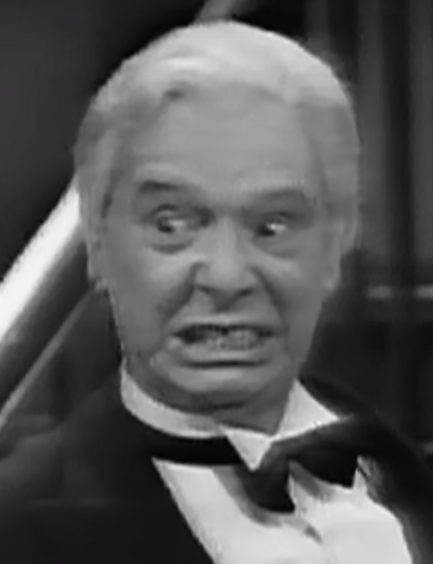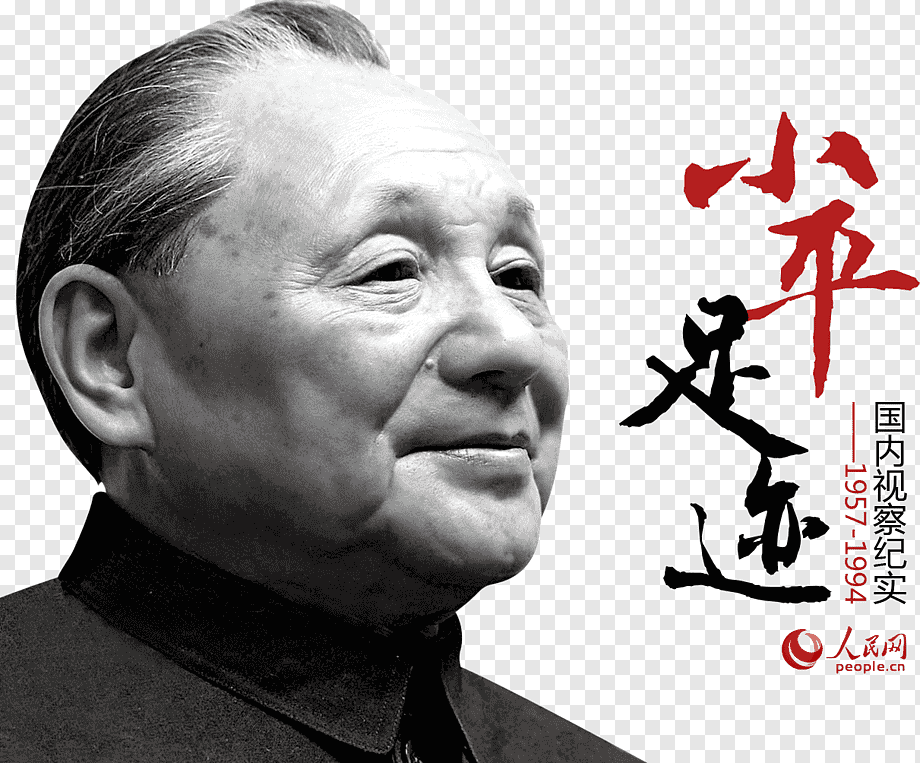You can totally say you’re a Marxists while repudiating the LTV. You would not be a Marxist, however.
I’d wanna ask you about David Harvey then, but outside of his reading of Capital he’s known for having some odd opinions. He’s also the only person I can think of who both claims to be a Marxist and doesn’t go along with LTV.
I would say he’s a Marx scholar and not a Marxist. Kinda like how there are atheists who study the Bible.
Yeah I’ve also heard of academics who call themselves ‘Marxians’ to mean while they study and apply Marxist economics, they don’t want the label of political Marxism.
Eh ltv isn’t really Marx’s and if it were it would be one of his many significant contributions to various fields. It’d still be reasonable to call yourself a Marxist if you ascribe to other parts of his framework, especially in specific academic contexts. And in revolutionary contexts I doubt most non-academic revolutionaries fully understand the mechanisms laid out in Capital, so it seems inconsequential really. Class analysis doesn’t inherently require ltv either.
I do think ltv makes more sense than modern models, but Marx was basically using bourgeois theory to critique itself, and arguably the same can be done using the more abstract modern models.
Eh ltv isn’t really Marx’s and if it were it would be one of his many significant contributions to various fields.
Marx may not have been the first theorist to come up with it, but the LToV is still foundational to most of the economic theory that did have its origin in his work. Furthermore, Marx did make contributions to the LToV itself, and in that sense it is one of his significant contributions to various fields.
It’d still be reasonable to call yourself a Marxist if you ascribe to other parts of his framework, especially in specific academic contexts. And in revolutionary contexts I doubt most non-academic revolutionaries fully understand the mechanisms laid out in Capital, so it seems inconsequential really.
A person doesn’t need to fully understand evolution by natural selection to consider themselves a Darwinist (biologically speaking, obviously I’m not talking about social Darwinism here). But if they reject evolution by natural selection as the mechanism for the diversity of species, then they are not Darwinists. Similarly, you don’t have to be able to explain the LToV let alone its nitty-gritty details, but if you claim that the theory is false, you probably shouldn’t be calling yourself a Marxist revolutionary.
Class analysis doesn’t inherently require ltv either.
Class analysis requires a mechanism for how one class exploits another economically, a mechanism that the LToV provides.
I do think ltv makes more sense than modern models, but Marx was basically using bourgeois theory to critique itself,
And that critique is what extended it beyond being merely bourgeois theory.
and arguably the same can be done using the more abstract modern models.
Maybe so. But are those models refutations of the LToV or elaborations on it? In either case, do you have examples?
It’s late and I’m about to head to bed, but to quickly reply: this is ultimately just a categorical discussion, so if you feel ltv is a necessary quality to the essence of Marxism that’s fine, I just think the label can be used in plenty of ltv-agnostic ways. To me the useful essence of a label like that is to describe an intensity of associations that can be directed or used to direct energy effectively, rather than a strict categorical structure. There’s simply no context where I’ll dismiss or disassociate from a person or idea that doesn’t claim one facet of Marxism, in theory or in practise, due to a categorical claim.
You bring up some good points which I’ll engage with later if I remember.
For what it’s worth, I agree with you on almost all of that. I think the main difference here is that I see the labor theory of value as being much more fundamental to Marxism than just, as you put it, one facet of it. It’s very difficult to keep Marxism as a whole if you toss out the LToV, since the whole structure would begin to crumble. It may be possible for similar models to be put in its place to prevent the crumble, but I think that those models would have to be close enough to the LToV that the distinctions wouldn’t really matter except to academics. (edit, fixed a word)
And in revolutionary contexts I doubt most non-academic revolutionaries fully understand the mechanisms laid out in Capital
Agree, one doesn’t have to be a Marxist to be revolutionary (see also: anarchist comrades) nor does one need to be a Marxist to be class-conscious. But it would be incorrect to call such a person a Marxist.
Marx was basically using bourgeois theory to critique itself
Yes, Capital was a critique of political economy, but not an entirely negative critique. He accepted the LTV in its basic structure. The main difference was clarifying what kind of labor counts as the content of value. He did this by applying a dialectical analysis, going from the
particular to theconcrete to the abstract and again in the opposite direction[1]. Only by doing this — in the process showing where in their analyses the earlier political economists went wrong — was Marx able to right the ship and arrive at the conclusions which now define Marxism.*edited a brain fart, also added Rubin details
I. I. Rubin, Essays on Marx’s Theory of Value ↩︎
When liberals ask “do you believe in the ltov?” they’re poisoning the well by implying that Marxism is some completely unscientific religion. No, the LToV is more like a definition of what Marx means when he says “value” and libs love to smugly say “that isn’t what value means according to xyz though” okay then we’re talking about something else aren’t we?
I mean I personally find the ltov to be more a more useful definition than other definitions of “value” because of what Marx does with it but to understand that you would have to read Capital and that’s too much commitment for a smuglord’s twitter post.
Understanding things in context was another thing Marx was big on so I’m positive he meant it to be taken that way.
libs love to smugly say “that isn’t what value means according to xyz though”
there is only one proper response to this and it’s stuffing them into a locker
The labour… Lens of value? Definition of value?

Dang I remember when Marx said that in his work “the theory of chuds”

By what means does the linen become a coat?
That’s the point logos235 is making right? That without the labor theory of value the whole thing falls apart
marxism is when you vote for joe biden and do yoga and not hate your wife
so like what happens when the labor theory of value gets “debunked”, does everything else we believe in fall apart like dominoes or does it like not actually matter if Marx was wrong about one obscure random thing no one ever talks about?
I imagine if the LTV got debunked we’d all have a good time never needing to work, since valuable goods apparently just appear out of nowhere.
Yeah well what if you made something and no one wanted to buy it? Checkmate, tankie.
Labour is what gives something value, but not all labour is of value (see: Keir Starmer)
Keir Starmer couldn’t even make a proper mud-pie if he was living in a bog
That’s essentially what liberals say
since valuable goods apparently just appear out of nowhere.
This is literally a foundational theory of mainstream liberal economic models, down in the bedrock where even econ grad students don’t get taught about it lmao.
It’s odd that Marx was inspired by liberal economists, yet the ones we see today are the caricatures of capitalists we see in old timey propaganda
LTV was the greatest achievement of classical liberal economy, but after developing it some more, they realised that by itself it is incredibly damning to the capitalist class and its further development points on socialism (like it led Marx to) and thus the pet economists since JS Mill took a step back into the current hamster wheel in which they still run almost 200 years later. It’s not coincidence that even liberal proponents and pioneers of LTV are forgotten (or never mentioned in the context of LTV) and bulk of even educated libs think it was sole invention of Marx - it allows them to claim entire scientific socialism is a cult and one single madman hypnosis over 1/3rd of humanity.
I mean the LTV is integral to how like capitalism and exploitation work, so the only “debunking” that ever happens around it is things like “hey why do things cost different prices at different times, markets and exchange are what create value not labour!” which is a point that Marx himself in Capital Vol. 1 calmly explains has no bearing on the LTV. You can’t debunk the labour theory of value unless you think humans doing stuff to things isn’t what creates value, which is frankly nonsense.
Ask them “If value and price are the same thing, what does it mean when an economist says something is over or undervalued?”
There are many different interpretations and solutions to the transformation problem (how are values “transformed” into prices). They range from ignoring it, making it more qualitative, reworking the math or definitions of value, etc. I’m not versed enough in all different interpretations, but one that I feel that I “get” and could explain is that offered by Ian Wright. Though his politics are too Trot for me, his correction of the transformation problem makes sense to me and I’ve wondered about doing a write up on it. It is under the framework of Input Output analysis with natural prices (equilibrium prices that act as an “gravitational attractor” for long term prices, this is also in the sphere of work done by economists such as Sraffa and Pasinetti), and he effectively takes Anwar Shaikh’s critique of Sraffa’s students (the Neo Ricardians) and applies this critique to their own model to show how the labor values of a good gives you natural prices but it requires care to ensure one is using the appropriate commensurate measure of labor in a commodity.
Effectively his response, and that of Shaikh from what I can tell, is that the profit of capitalists appears as if it comes out of nowhere and can’t be explained by the standard definition of labor value in Sraffa’s economic model. But the profit that capitalists make (after spending on means of production) get spent back into the economy (in the sphere of circulation) on real use values (say for their class consumption) which have a labor content due to being products of labor. If you “complete that path” of capitalist consumption goods back to their source (labor) and add that labor back into the labor content of a commodity, then boom - labor values march natural prices in Sraffa’s own model.
In other other terms: the standard view of a labor value is the amount of labor needed to create one unit of net output (the quantity of goods available for consumption after reinvesting some portion of them as materials for production). So this is labor that’s directly required for the production of the unit net good plus labor for the materials required for the unit net good. But, capitalists consume part of this net product and laborers only consume part of it. If the prices of the unit net good matched this measure of labor then prices would be low enough that workers could theoretically buy back with their money-wage their entire net product - leaving none for the capitalists. Some “markup” appears to exist and classical Sraffian model couldn’t explain this markup in terms of labor.
But if you measure a “non-standard” labor value (a la Wright) as the amount of labor needed to produce the commodities that only the working class consumes then you get a labor value that also explains this mysterious “markup”.
A non-standard labor value counts the amount of labor that is directly and indirectly required to produce a good due to technical conditions, but also the amount of (surplus) labor that is socially/institutionally required by workers to create their real wage (i.e. their consumed product)
I don’t claim to understand all of it, or be the best at explaining it. So my apologies for the difficulties. But it is an explanation that meshes with me, and my math-brain seems to get it (the original papers require knowledge of Linear Algebra). It also "cleans up Sraffa’s and Pasinetti’s economic work and brings that back into alignment with Marx.
Wright also has a dynamic version of this description which better gets at what is usually meant when people say a labor theory of value (the feedback loop between prices, values, and social division of labor)
Thanks for your detailed response comrade, it’s very insightful. I have a very superficial reading of sraffian economics (as a layman, I’ve been introduced to it by some ParEcon books), are there any other reading materials you would recommend to better understand it?
I wish I had notes written up into some type of primer as a few people have asked for a similar introduction to Sraffa or Ian Wright’s work and I never know exactly what to say. I never found one good introduction, and I’ve had to pick this up from various sources. Note that there is still much I need to learn and blind spots I may have, but here are a set of sources that may be useful for anyone wishing to understand Sraffa, Pasinetti, or Ian Wright’s solution to the transformation problem.
First, much of this relies on knowledge of linear algebra. Any introduction to vectors and matrices can suffice - you don’t need an advanced knowledge of linear algebra. Feel comfortable with vector multiplication with matrices (for left/row and right/column vectors), inverse matrices, and eigenvalues. I know that a hexbear user here lately joked that they get nothing from math videos, but if you do want to refresh your knowledge of intuition of linear algebra then I suggest checking out 3Blue1Brown’s video series on the topic. Personally, I enjoyed how they made the topic visual, and it helped me better understand topics in the field that I only ‘formally’ knew. There’s also Khan academy and many other intros to Lin. Alg.
If you want to jump directly into Ian Wright’s arguments then you could check out his paper Marx’s Transformation Problem and Pasinetti’s Vertically Integrated Subsystems (2019). This is his correction to Pasinetti’s earlier work Growing Subsystems, vertically Hyper-Integrated Sectors and the Labour Theory of Value (1988). These aren’t introductions, though.
As I mentioned earlier, I don’t have a single great introductory work to give you. If others know of one, I’d be happy to check it out! But, one can start by learning Input Output tables. These tables as we know them today were introduced by Wassily Leontief, and though I don’t have a work for introducing Leontief’s Input Output table one can find plenty of sources on this online. Even Wikipedia is not too bad of a place for a basic introduction to them. When you learn how Input Output tables are used then you understand the “quantity equation” in Sraffa’s model. This tells you how much of each product/commodity should be produced overall given some net demand. Sraffa’s model introduces a “price equation” using Input Output analysis that breaks price into wages, costs of materials, and profits. The simplest version of his model ignores fixed capital and assumes purely circulating capital (there are different attempts at how to generalize this to fixed capital).
A tangent on equilibrium before moving on: Some people will criticize Input Output analysis as it assumes equilibrium. While I think it’s obviously important to note that disequilibrium is the norm I sometimes feel those critiques miss the point of Input Output analysis. If one is familiar with dynamic systems then one is likely aware of attractors. These are points or states in some “space” (real space, “economic” space, etc.) which a system tends to evolve toward (or maybe ‘hover’ around). Attractors can tell you something about the structure or behavior of a system even if the system is never at the attractor. I like to think of equilibrium points analyzed in Input Output models as an analysis of this attractor (which can also grow or change with time) in an economic system. The economy may be in disequilibrium at any given time, but its long term behavior, or the direction the system is evolving toward at a given time can be understood by modeling this attractor. Shaikh also discusses this interpretation of equilibrium analysis in his book Capitalism: Competition, Crisis, and Conflict and discusses it as turbulent gravitation and claims this is a view of equilibrium that Classical economists also had. This view of equilibrium in Leontief’s/Sraffa’s models is a view Wright shares as well. Effectively an input output analysis tells us something about the structure of an economy, even if the economy is not in equilibrium at any given moment. Others may disagree, and I’m definitely not an expert - I’m coming at this from a different background than economics. So keep that in mind.
For works on Sraffa, there is his own piece Production of Commodities by Means of Commodites (1960), but the linear algebra notation is not “up-to-date” which can make it harder to read. There is also Passinetti’s Lectures on the Theory of Production (1977) which is a good intro to Leontief and Sraffa and has a good appendix for Linear Algebra, but is likely hard to get a copy of. Another work is Kurz and Salvadori’s Theory of Production. A Long-Period Analysis (1995), though I haven’t given this a read. These works will accept that the labor theory of value is incomplete or incorrect, though. So this is why I recommend “completing” them with Ian Wright’s work if you accept it.
Honestly, though, I started with multiple places. I didn’t start with the above books. One of the first papers I read about this is Ian Wright’s Nonstandard Labour Values (2007). This can be a good place to start once you have a handle on linear algebra as the work is available online. Another is Ian Wright’s own thesis The Law of Value (2015) which you can find online as well. Something I like about how Ian Wright approaches this field is that he uses network diagrams to show the flow of products, labor, and capital. Coming from a Physics field I like some type of diagram to go with any math and description of a system - so that helped me. If you want a non-mathematical argument for Wright’s solution then you can check out Chapter 3 of his thesis. Chapter 7 is his attempt at moving away from static models and toward a dynamic model of the labor theory of value.
Wright also has a blog, Dark Marxism and the earlier pieces provide an introduction to Input Output analysis so you may find that useful as well. In this blog he introduces Pasinetti’s idea of a self-replacing subsystem (i.e. a vertically integrated subsystem) which is another way of approaching an Input Output table.
Wright also has some interesting takes bringing esoteric thought to Marxism, viewing Capital as a egregore or a demon or demiurgic-like entity. So those can be refreshing when you want to take a break from the math. I’ve seen others here on Hexbear link or reference those parts of his work. Politically he seems like a Trot (sad), though I like his writings.
I probably sound like I’m his alt-account or something, so I do apologize for focusing so much on what he has written. But I have learned a lot from reading his papers and I’m still new to the field as well. I do think a solution to the transformation problem is important for Marx’s standing as a science because even here on this post we can see people debating the truth behind the labor theory of value. I see the transformation problem as introducing a crisis of confidence in Marx’s political economy (for some more than others) and so there is importance in resolving it. In relation to profits, the importance of the labor theory of value is these profits, the source of “income” for the capitalists can be shown directly to be the exploited labor of the workers. There is no justification via utility theory or other stances. And political economy can and should be studied from this viewpoint of labor. Exploitation is not some subjective ill (which would be bad enough if it were) but has an objective existence as the pillaging of the real time, energy, and spirit of the working class. Profits are directly related to the amount of this labor that the ruling class steals from us. And a solution to the transformation problem restores our confidence in formally stating this. Hope this was of some help!
Thanks a lot! I have to digest some of what you mentioned before I feel like I can say I understand this. Yet I can say that the appeal of all of the thinkers you mentioned is that they systematize some of Marx’s insights. I don’t know if/where they diverge from more established Marxist thinkers but the insights seem worth the effort.
Also, just like you, my background is STEM, so the mathematical treatment matches that type of brain.
Once again, thanks for such a detailed reply!
I get the mathematical treatment helping in ways! Glad to see another STEM person into Marx! Since you already got the math down then you could jump into Wright’s paper Nonstandard Labor Values or his thesis after feeling comfortable with input output tables. I would also look at his early blog posts to see how he explains it with a simple network of an economy. Whenever I do any of the math for this I always start with drawing a network of labor and product flows, and money flows. Physics trained me to “draw a diagram” and so that’s just how I approach this now.
And a reason I appreciate Wright’s work is it tries to bring Marx back to Sraffa, while offering a correction to the transformation problem that appears in his work. But I am still not knowledgeable enough to speak of all the divergences. One, is that we can have two different equations for, or ways of measuring, a labor value.
The standard one that Marx works with is a “technical” labor value that isn’t commensurate with a measurement of price - it just measures the labor necessary to produce a good solely due to technical requirements of the means of production. The other measure is the non-standard or “institutional” labor value that is commensurate with price (so no transformation problem). This measures the labor necessary to produce a good due to technological and institutional requirements (the ‘institution’ of capitalist exploitation). When exploitation disappears then non-standard values reduce down to standard values.
If capitalists increase their profit and this profit is realized as use values for the capitalist then it requires workers (somewhere) to work more for the production of these use values compared to the production of their own use values. More surplus value is produced that doesn’t go to the workers. But the technical requirements of production have not changed in such a case - so standard values have not changed. If wages are kept constant as profits increase then we see an increase in price (In this model). This price increase can’t be explained by the standard measure of value, but can be explained by the non-standard measure. Standard values “stop short” of measuring value commensurate with price.
So some divergences between Marx and Wright may occur where Wright would accuse Marx of working with a standard measure of value when a non-standard measure would apply when discussing price, and vice versa. But I don’t think it would change the main conclusions of Max’s work.
I would like to go through Capital with this lens and spot any divergences or ways in which this framework may clarify things for me. Just need time, discipline, and probably many lifetimes lol
deleted by creator
You can totally say you’re a Marxist while not supporting Barack Hussein Obama. You would not be a Marxist, however.
Addressing Common Criticisms of the Labor Theory of Value
https://taiyangyu.medium.com/addressing-common-criticisms-of-the-labor-theory-of-value-bdf49281fab
I believe in Marx, the Father almighty,
maker of Scientific Socialism.
I believe in Vladimir Lenin, his first successor,
made traitor to the capitalists
by his loving wife Krupskaya.
He suffered under Tsarist Russia,
was hunted down, and censored;
then exiled to Europe.
One year he led the Revolution.
He succeeded in this endeavor
and is seated at the right side of Marx the Father almighty.
From there he will judge the leftists and rightists.
I believe in Yosef Stalin,
the united vanguard party,
democratic centralism,
scientific socialism,
anti-imperialism,
and progress ongoing. Amen.
- The Leninist Creed.
There, you happy? The three tenets are what I consider Marxism’s core to be.
*progress ongoing, as in cultural and institutional progress, as a note, something about economic base and ideological superstructure…
victoria 3 is therefore a marxism engine
I think they had to nerf some of the revolutionary/marxist features of the game because they realized it was too OP lol
it’s still the best way to max standard of living for most people, who knew
Umm wasn’t ‘the labour theory of value’ an artifact of contemporary liberal economic orthodoxy
Other labor theory of values had been proposed before Marx, but Marx developed it into a consistent and rigorous form. It was (and should now still be) obvious to even liberals that value is created through labor. How that works, in what amounts, and how that value is imbued and made useful in an economy are things that Marx developed entirely differently to his predecessors
Most people play games these days and talk about things being overpriced. I like to use this as a way of explaining value.
Why is the product overpriced? What measure is the person using when looking at a skin you can buy in a videogame to assess its value?
They know people will pay this price, and that it’s being priced at the maximum amount efficient for highest profit. But what makes them FEEL that it is overpriced?
Because the price is considerably higher than its value. The method of feeling out the value that human beings use is based on how much labour they think went into the product, proportional to the size of the audience that it is being sold to of course.
I like to use this internal feeling of value to get people to realise that they’re using this theory themselves internally without realising it.
Other gave good responses, but here are two papers which test the Marxian Labor Theory of Value with contemporary economic data if you are interested:
Zachariah, Dave. Labour Value and Equalisation of Profit Rates: A Multi-Country Study.
Tsoulfidis, Lefteris, and Dimitris Paitaridis. “Chapter 8 On the Labor Theory of Value: Statistical Artefacts or Regularities?” Research in Political Economy, edited by Paul Zarembka, vol. 25, Emerald Group Publishing Limited, 2009, pp. 209–32, https://doi.org/10.1108/S0161-7230(2009)0000025011.
The bibliography of the first paper also has a lot of related reading.
Yes. Marx discusses this at length in Capital and criticizes Ricardo and Smith. His contribution with surplus value and how it relates to the coat is one of his many contributions to advancing the LTV.
but what can you not drop? shitting on the clock, of course

























